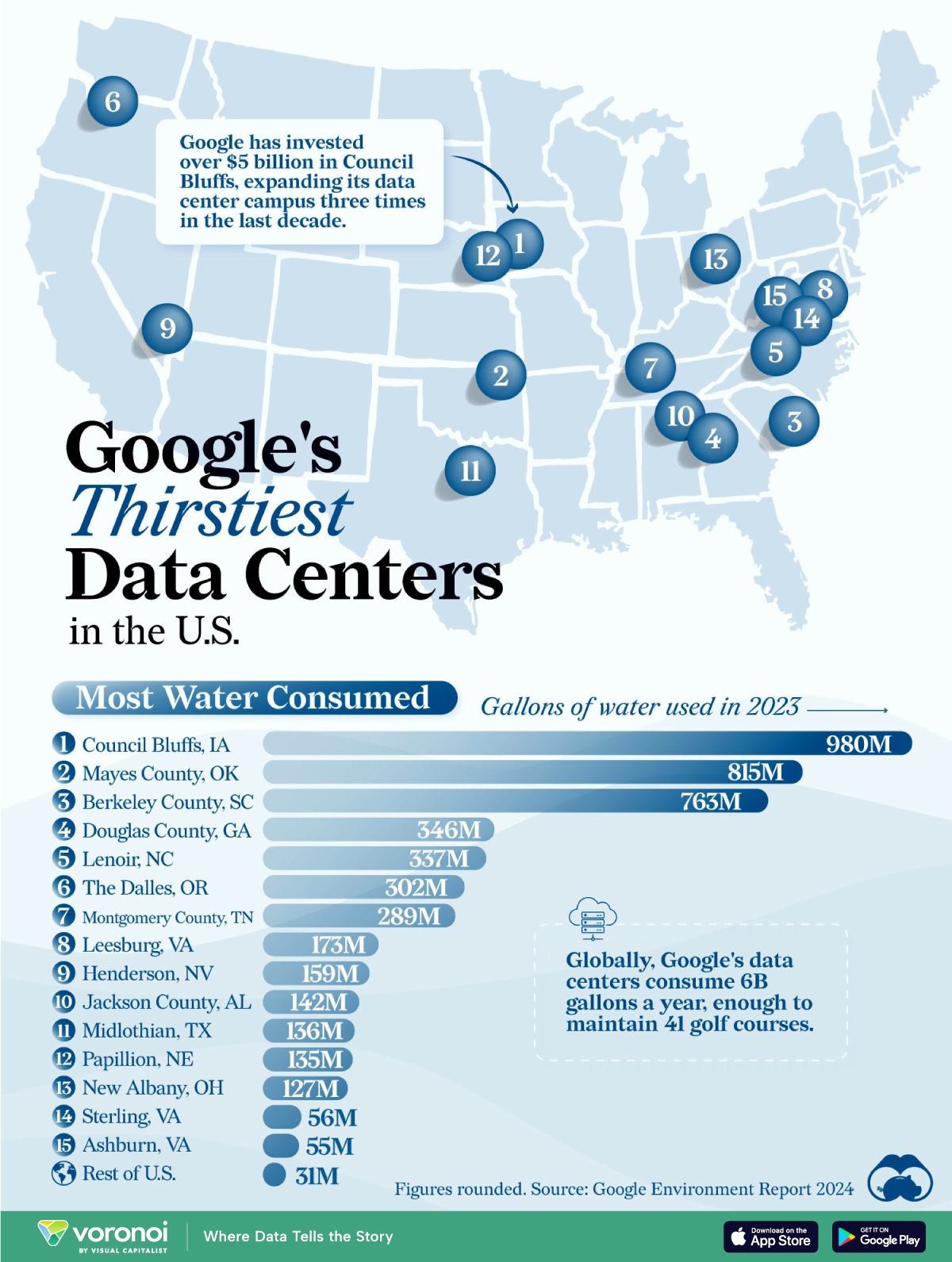
Worldwide, tech behemoth google's data centers use up a mind-boggling six billion gallons of water every year. This is because computer servers generate a lot of heat, and water is used in chiller plants, evaporative cooling systems and humidification to keep the servers' temperatures down.
Using google's own 2024 Environmental Report, Visual Capitalist mapped the company's US data centers that consume the most water. Figures are accurate as of 2023.
google's Council Bluffs, Iowa, data center consumed more water than any other in the country in 2023, at 980 million gallons.
The data center complexes in Mayes County, Oklahoma (815 million gallons), and Berkeley County, South Carolina (763 million gallons), are the second- and third-thirstiest in the US.
The rest of the company's American locations use significantly less water than the top three — but the fourth-ranking spot, Douglas County, Georgia, still guzzled down a considerable 346 million gallons in 2023.
Click image to enlarge
Via Visual Capitalist.


